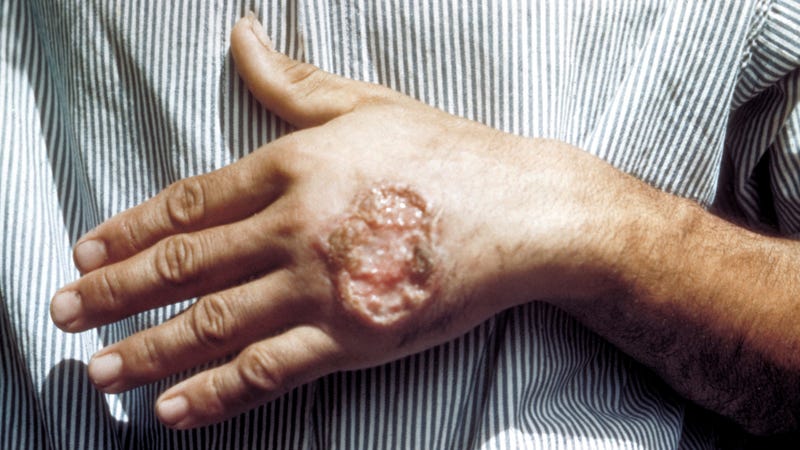 Image: CDC/ Dr. D.S. Martin
Image: CDC/ Dr. D.S. Martin
Being healthy is good. That is what we should all aspire to be: Not dead, but with all of our flesh on our bodies intact. Unfortunately for us humans, having our flesh eaten is one of the possible side effects of being alive.
Anyway, scientists at Georgia Tech interested in helping us achieve the general aspirational goal of not being eaten have an idea: A vaccine against the flesh-eating parasite, Leishmania. While they’ve only tested the model in mice, they’re hopeful that they’ve actually found something promising in the fight against this awful affliction.
“We showed here that [lab mice] are susceptible to immunization against causative organisms of cutaneous and visceral leishmaniasis,” the authors write in the study published in the journal ACS Central Science.
You might not worry about Leishmaniasis, but scientists estimate there are upwards of a million cases of the parasite a year in warmer environments. Transported and spread by flies, the parasite can cause skin sores in some forms and organ swelling (and death) in the forms that affect organs. Scientists hoping to fight the disease took a close look at some samples of the parasite to see if it might have molecules on its surface they could train the human body to recognize.
The researchers dug up a previous paper that showed patients cured of the skin-deep form of Leishmaniasis had increased level of antibodies (proteins that tag and help neutralize invaders) specifically targeting a carbohydrate nicknamed alpha gal. Looking closer, they realized that the surface of these Leishmaniasis parasites contained alpha gal, so they made an anti-alpha gal vaccine with a custom virus-like particle.
Testing the vaccine in the mice required creating two kinds of mice, thirteen wild-type and the other thirteen genetically modified to look more like a human host that would produce anti-alpha gal antibodies, according to the paper. And it seemed to work. The genetically modified mice made more anti-alpha gal antibodies than the wild type, and seemed to be more resistant to a Leishmaniasis infection.
You’re probably thinking, this is nothing like a vaccine clinical trial and doesn’t prove that a vaccine is around the corner. You’re right, a mouse is not a human and there’s obviously lots more work to be done before a vaccine for the disease shows up. I have reached out to a few outside experts for further comment.
Anyway, long live you and your non-eaten body. I hope we don’t have to deal with a Leishmaniasis outbreak in the United States, and if we do, I hope the vaccine is ready.
[ACS Central Science]